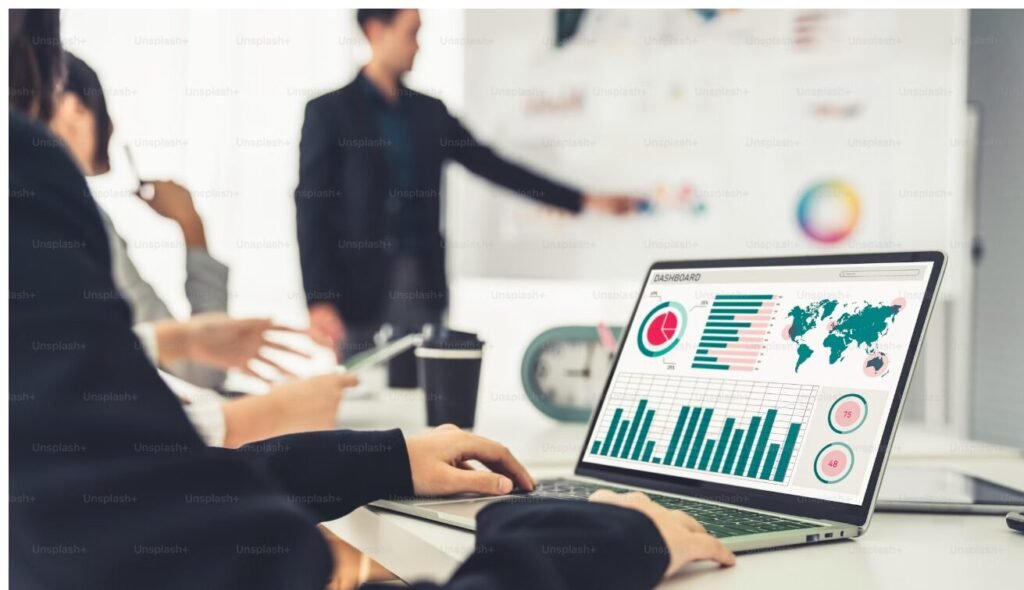In today’s hyper-connected world, 86% of consumers rely on digital channels to discover and evaluate products before making a purchase. Yet, surprisingly, many businesses still struggle to establish a meaningful online presence, missing out on countless opportunities to connect with their target audience.
From understanding the fundamentals of digital marketing to implementing core strategies and measuring success, this guide will walk you through everything you need to know about transforming your business into a digital powerhouse. Let’s explore how digital marketing can become your most powerful tool for growth in the digital age.
Understanding Digital Marketing Fundamentals
Key Components of Digital Marketing
Digital marketing comprises several interconnected elements that work together to create a comprehensive online presence:
- Search Engine Optimization (SEO)
- Content Marketing
- Social Media Marketing
- Email Marketing
- Pay-Per-Click Advertising
- Analytics and Data Analysis
| Component | Primary Function | Key Benefit |
|---|---|---|
| SEO | Improves website visibility | Organic traffic growth |
| Content Marketing | Engages target audience | Brand authority |
| Social Media | Builds community | Direct engagement |
| Email Marketing | Nurtures leads | Personal connection |
| PPC | Drives immediate traffic | Quick results |
| Analytics | Measures performance | Data-driven decisions |
Online vs Traditional Marketing
Digital marketing differs significantly from traditional marketing in several crucial ways:
- Reach and Targeting
- Traditional: Limited geographical reach
- Digital: Global audience potential
- Cost Effectiveness
- Measurement
- Traditional: Difficult to track exact ROI
- Digital: Precise metrics and real-time data
- Interaction
- Traditional: One-way communication
- Digital: Two-way engagement
Core Digital Marketing Strategies
Search Engine Optimization (SEO)
SEO focuses on optimizing your website to rank higher in search engine results. It involves both on-page and off-page techniques to improve visibility and organic traffic.

Content Marketing
Content marketing involves creating and distributing valuable content to attract and retain customers. This strategy builds trust and establishes authority in your industry.
Social Media Marketing
Social platforms enable direct engagement with your target audience through:
- Regular posts and updates
- Community management
- Influencer collaborations
- Paid social advertising
Email Marketing
Email remains one of the most effective digital channels, offering:
- Direct communication with customers
- Personalized messaging
- High ROI potential
- Measurable results
Pay-Per-Click Advertising
PPC advertising provides immediate visibility and precise targeting options.
| Strategy Type | Time to Results | Cost Level | ROI Potential |
|---|---|---|---|
| SEO | Long-term | Medium | High |
| Content Marketing | Medium-term | Low-Medium | High |
| Social Media | Short-Medium | Variable | Medium-High |
| Email Marketing | Short-term | Low | Very High |
| PPC | Immediate | High | Medium-High |
Each strategy works best when integrated with others in a comprehensive digital marketing plan. The key is selecting the right mix based on your business goals, target audience, and available resources. With these core strategies in place, let’s explore the significant benefits they can bring to your business.
Business Benefits of Digital Marketing
Global Reach at Lower Costs
Digital marketing breaks geographical barriers, allowing businesses to reach customers worldwide at a fraction of traditional marketing costs. A simple social media campaign or optimized website can attract international customers 24/7 without maintaining physical presence in multiple locations.
Business Benefits of Digital Marketing
Global Reach at Lower Costs
Digital marketing breaks geographical barriers, allowing businesses to reach customers worldwide at a fraction of traditional marketing costs. A simple social media campaign or optimized website can attract international customers 24/7 without maintaining physical presence in multiple locations.

Digital Marketing Success Factors
Mobile-First Approach
In today’s digital landscape, over 60% of web traffic comes from mobile devices. A mobile-first approach isn’t just an option it’s critical for success. Ensure your digital content renders perfectly on smartphones and tablets through:
- Responsive web design
- Fast loading times (under 3 seconds)
- Touch-friendly navigation
- Simplified checkout processes
- Mobile-optimized content
Consistent Brand Messaging
Maintain brand consistency across all digital channels through:
- Unified brand voice and tone
- Consistent visual elements
- Aligned marketing messages
- Coordinated campaign themes
Regular Strategy Updates
Digital marketing requires constant evolution. Monitor these key metrics monthly:
- Engagement rates
- Conversion metrics
- ROI measurements
- Channel performance
- Competitor activities
Now that you understand the critical success factors, let’s explore how to implement these principles in your digital marketing journey.
Conclusion
Digital marketing has emerged as a cornerstone of modern business success, offering diverse strategies from social media and content marketing to SEO and email campaigns. These powerful tools enable businesses to reach wider audiences, generate quality leads, and achieve measurable results while maintaining cost-effectiveness – making it an indispensable part of any growth strategy.



